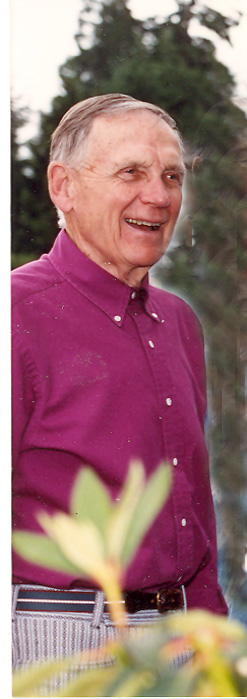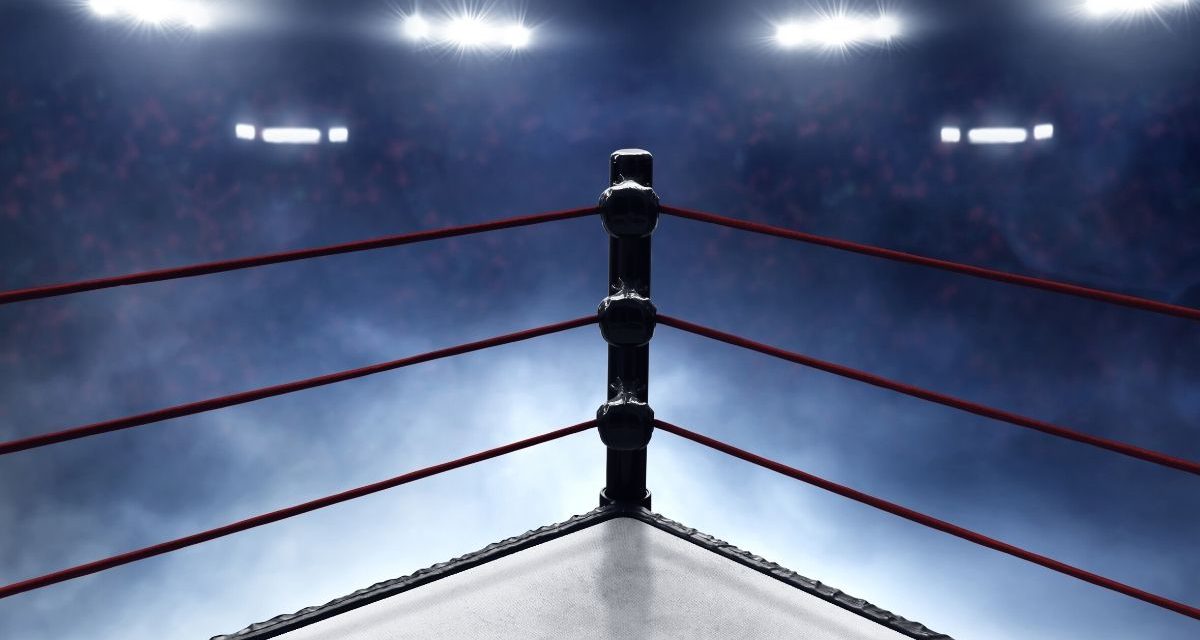There are 101 reasons to remember the life of Seattle promoter Harry Elliott, who died Sunday, in Portland, Oregon, just shy of his 102nd birthday.
For one, he had the respect of the boys.
“He was straight A all the way, he protected the business,” wrestler John Buff told Ring Around The Northwest earlier this year. “He was very good on payoffs. He was a good man to work for.”
“Harry was always a fair guy. I liked him. He was upfront when he talked to you. There wasn’t nothing that he’d try to slip behind you,” wrestler Al Fridell told SLAM! Wrestling. “When he told you that you were going to be working, you worked. He paid reasonably. He gave you enough money that it was worth your while.”

Harry Elliott, circa 1996. Courtesy Dean Silverstone
John Harrison Elliott was born August 16, 1904, in Shreveport, Louisiana. He moved to Portland, Oregon in 1936, and went to Oregon State University, first as the wrestling champion for the varsity squad, and later as the wrestling coach for the school. During World War II, he was an assistant superintendent in the Swan Island shipyards.
Elliott would join the Owen Family in running professional wrestling in Oregon, putting on all the spot shows, and refereeing until 1957.
In 1958, he obtained a contract with CBS television to broadcast live wrestling in Seattle.
“That made everybody a lot of money because he was able to get the sole contract for live wrestling in the Seattle area. Before that, it just had broadcast sporadically,” explained Dean Silverstone, who worked with Elliott in his Seattle wrestling office when he was just 11 years old in 1959, creating the programs. “He was the innovator up here. As far as Don Owen went, he made Don Owen a ton of money because Don Owen was able to get better boys into the area because Harry actually had the best payday of the entire week. They would work Seattle on Tuesday, and of course they worked Portland … the reason Don was able to get so much great talent through the years was because Washington was paying half the bills.”
From 1958 to 1969, Elliott was the sole promoter in Washington, Idaho, and northeast Oregon.
“His television show was, perhaps, the best live show of its kind ever produced and earned extremely high ratings during its ten years on the air. In 1967, management of the network changed and the show was dropped,” Silverstone once wrote in a Whatever Happened To …? newsletter. In 1968, Elliott retired from pro wrestling.
“He was always a real quiet guy. He wasn’t a real boisterous man. He was well-educated and quiet.”
Fridell was pleased to get time on the TV show. “I was on there a few times. I was a young man when I first started. You didn’t get on the main events, you got on the primaries, the small opening shots where you’d be 20 minutes to a half hour,” he said. Interviewers like Pat O’Day brought the wrestlers and other celebrities to the microphone. “That’s where I got the chance to get a little exposure.”
Elliott was the promoter for one of the biggest matches ever in Seattle. In 1966, Lou Thesz beat Gene Kiniski and close to 15,500 fans filled the Coliseum.
“I really learned so much from his expertise. He could walk into a building that people had no idea could be used for a wrestling arena or wrestling auditorium. He would handle them with kid gloves, but actually convince them that what they were doing was a superior thing,” Silverstone said. “He always used to say, ‘I enjoy doing business with professionals.’ He would make the person he was talking to feel very important. I think that’s what got him in the front door in a lot of places, but especially with CBS television. That made his career.”
Besides the wrestling connection, Silverstone got to know Elliott through a surprising family connection. “I had no idea when I started dating my current wife that her sister was married to Richard Elliott, Harry’s son. When I first found out about it, I drove off the road because I was so excited. I hadn’t seen Harry in about seven or eight years. It was just a small world. We remained friends through family gatherings as well. We were also close, as close as anyone ever got to him, because he was very, very, very private.”
Fridell agreed with Silverstone’s assessment of Elliott. “He was always a real quiet guy. He wasn’t a real boisterous man. He was well-educated and quiet.”
Though he didn’t have anything to do with wrestling many decades (he sold real estate), Elliott would still attend Silverstone’s wrestling reunions at his home over the past dozen years, sharing memories with many wrestlers from the past.
At the time of his death, Elliott lived in Portland, Oregon. He is survived by his wife, Junna Lee, whom he married in 1942, and his son, Richard, of Kirkland, Washington. Remembrances to Providence Hospice in Portland.
Elliott would have been 102 on August 16, 2006. “101 is really in rare territory,” said Fridell.
“Anybody who can get 101 years out of this world, that’s a blessing,” said “Playboy” Buddy Rose.

